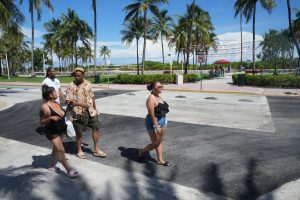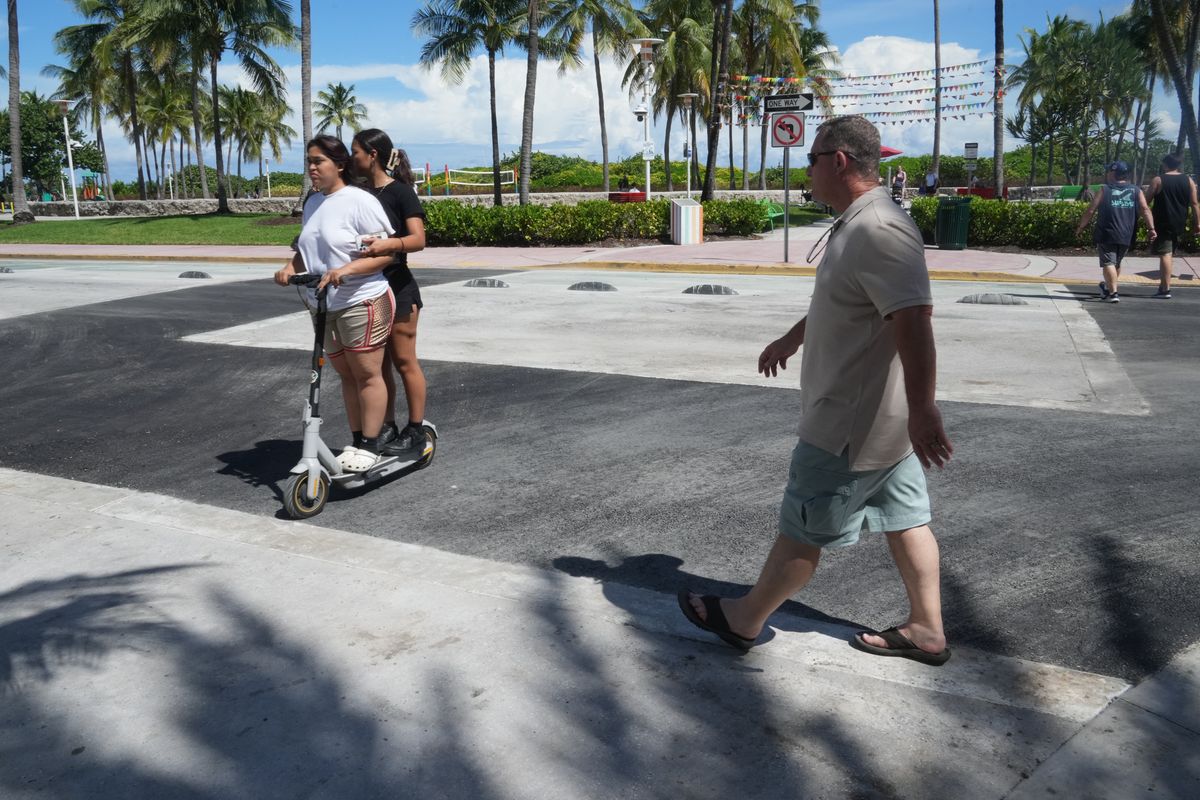MIAMI (AP) — A rainbow-colored crosswalk meant to celebrate the history and contributions of the LGBTQ+ community in Miami Beach has been removed from the city’s iconic Ocean Drive entertainment district about two months after Florida officials ordered the removal of all street art throughout the state.
Workers with the Florida Department of Transportation began tearing up the colorful pavers Sunday afternoon, just two days after Miami Beach officials learned they had lost their appeal against the state order. By Monday, the intersection was paved over in asphalt.
Miami Beach Commissioner Alex Fernandez said city public works employees collected all of the removed paving stones so that they can be repurposed in the future.
“This represented decades of people who endured housing discrimination, expulsion from the military, workplace discrimination, the stigma of HIV and AIDS, the fight for marriage equality, all the hard-won battles that took the LGBTQ community from being marginalized to now being a visible, celebrated part of the community,” Fernandez said.
The Miami Beach crosswalk — a place to see for multiple tourist guides — was designed by the Savino & Miller Design Studio and installed in 2018. It featured multicolor terrazzo pavers arranged in an Art Deco pattern, a style with nearly a century of history in the city.
Fernandez said the crosswalk was designed following federal guidelines and noted that it’s one of the safest intersections in the area, with half as many crashes as the closest intersection to the south since 2018.
The Department of Transportation under Republican Gov. Ron DeSantis had ordered communities to remove the crosswalks and other street art by early last month and threatened to withhold state transportation funding for noncompliance.
Critics say it’s the latest attack on the LGBTQ+ community by the DeSantis administration and Republican-controlled Legislature, including restrictions on gender-affirming care and Florida’s measure commonly referred to as Don’t Say Gay, which bans classroom instruction about sexual orientation and gender identity in public schools.
DeSantis has previously explained his administration’s rationale: “I think the street art got out of hand. I think it’s much better that we use crosswalks and streets for their intended purpose.”
Not all of the street murals tapped for removal pay tribute to historically marginalized groups. A “Back the Blue” mural outside Tampa police headquarters, was painted over.
Among the first crossings to go was a rainbow one, honoring the victims of the 2016 massacre outside the Pulse Nightclub in Orlando, where 49 people were killed. Work crews painted it over in the middle of the night in August, angering community members who restored its rainbow colors, only to see a state transportation department crew repaint it black and white.
By DAVID FISCHER
Associated Press


